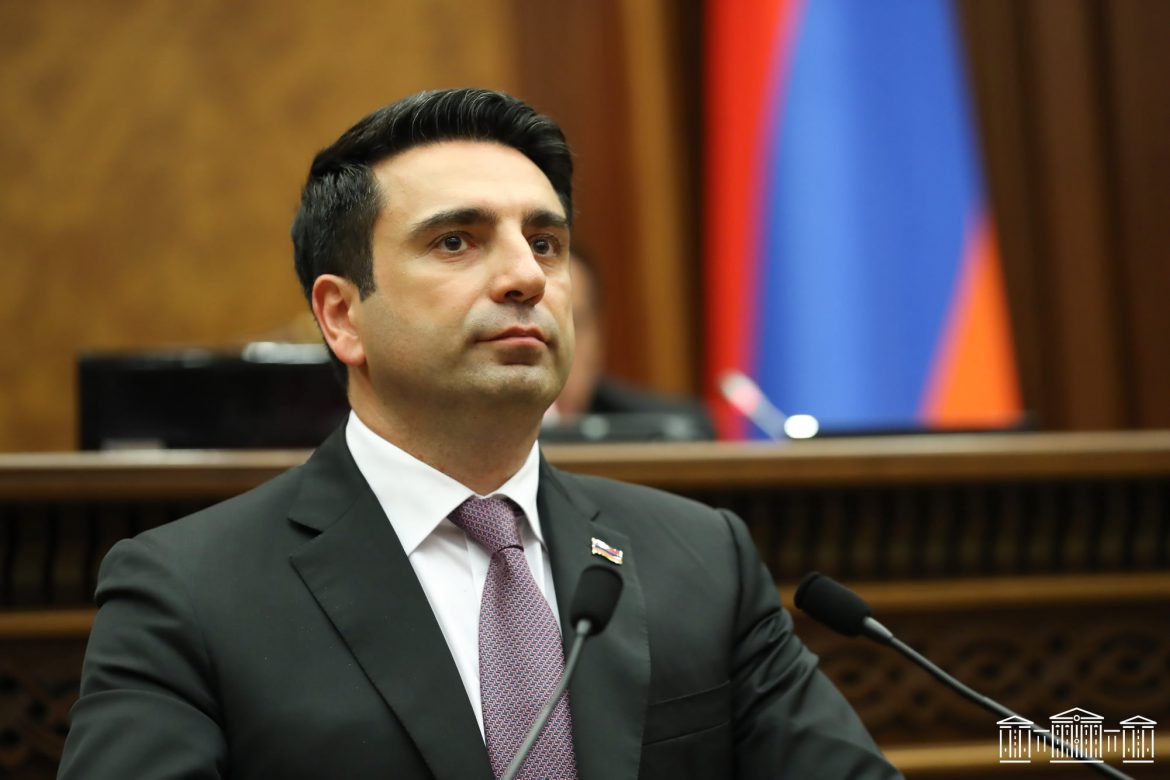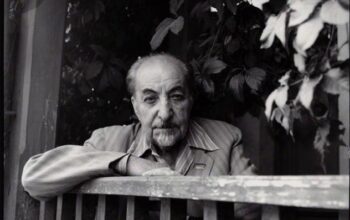The Armenian government’s muted response to the ongoing trials of eight former Artsakh leaders in Azerbaijan has provoked widespread condemnation, with critics accusing Yerevan of abandoning its own citizens to appease Baku. Despite growing outrage, parliament speaker Alen Simonyan, a close ally of Prime Minister Nikol Pashinyan, declined to denounce the trials, describing them merely as “unfortunate.”
“Let’s hope that after the trial is over, it will be possible to discuss bringing these people back and releasing them in some way,” Simonyan told reporters on Tuesday, offering a vague and tepid acknowledgment of the situation.
The trials, which began in Baku last Friday, target Artsakh’s former political and military leaders and eight additional Armenians captured during Azerbaijan’s September 2023 offensive. The military assault not only displaced the region’s entire Armenian population but also led to the capture of these individuals, who now face a litany of criminal charges.
Despite the gravity of the situation, neither Pashinyan’s office nor the Armenian Foreign Ministry has issued a formal statement, leaving many to question the government’s commitment to defending its citizens and standing up to Azerbaijan’s aggressive tactics.
Opposition groups have blasted this silence as a continuation of Pashinyan’s policy of unilateral concessions to Azerbaijan, accusing his administration of prioritizing diplomacy over the lives and dignity of Armenians. In response, Simonyan dismissed the criticism with an astonishing lack of urgency. “What is there to react to?” he said. “We are watching, we know, we see what is happening, but there is nothing to react to.”
The ruling Civil Contract party’s stance has further inflamed tensions. On Monday, deputy chairman Vahagn Aleksanian appeared to suggest that some of the imprisoned leaders, such as Arayik Harutiunian, bear responsibility for their predicament. This thinly veiled attempt to shift blame has only deepened public frustration with the government’s perceived indifference.
By refusing to take a firm stance or even issue symbolic condemnations, Pashinyan’s administration has sent troubling signals about its priorities. Critics argue that this inaction not only emboldens Azerbaijan but also undermines Armenia’s credibility on the international stage. While the government may claim to be pursuing a cautious diplomatic approach, its silence speaks volumes—and it is not a message of strength.




